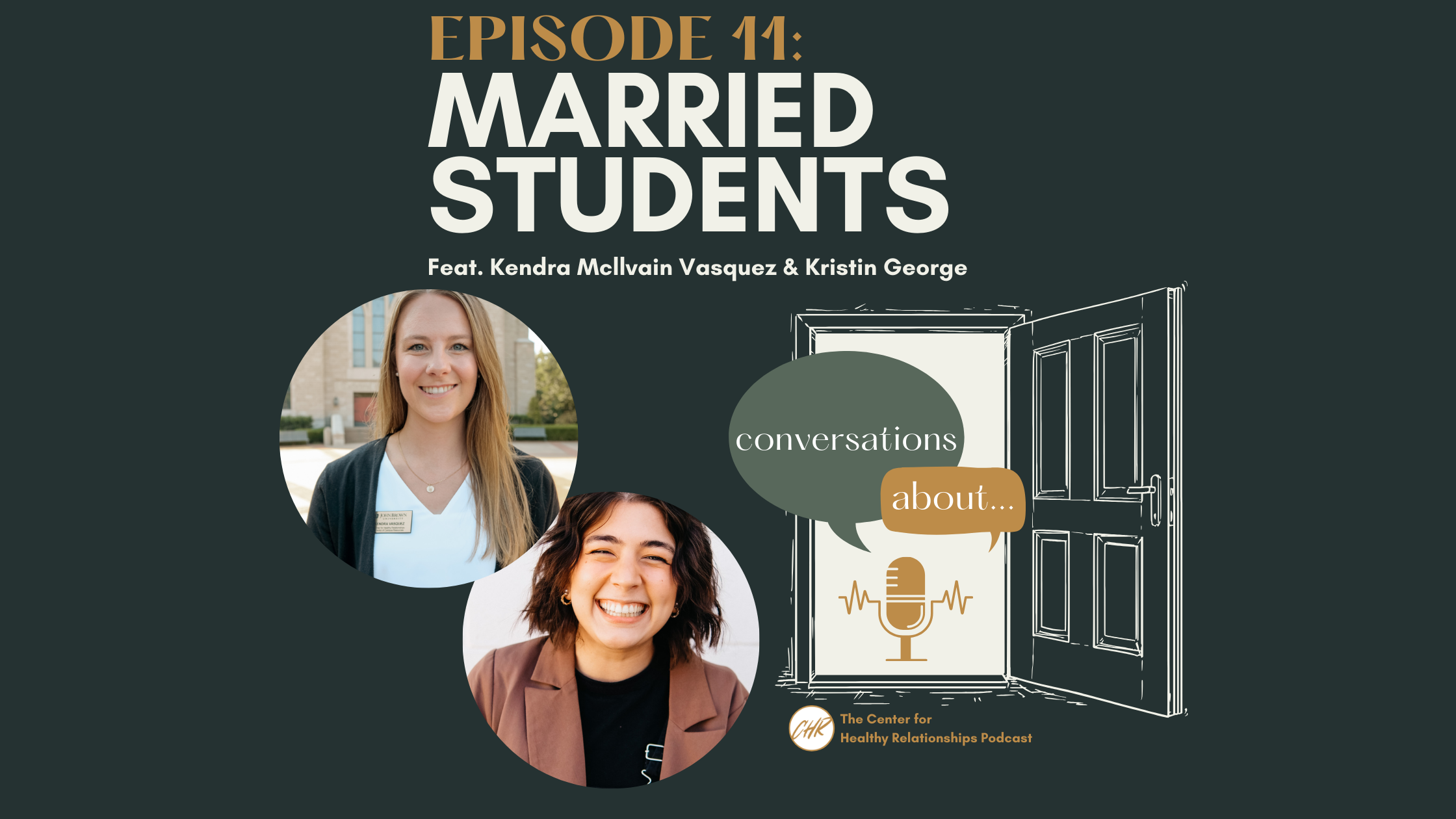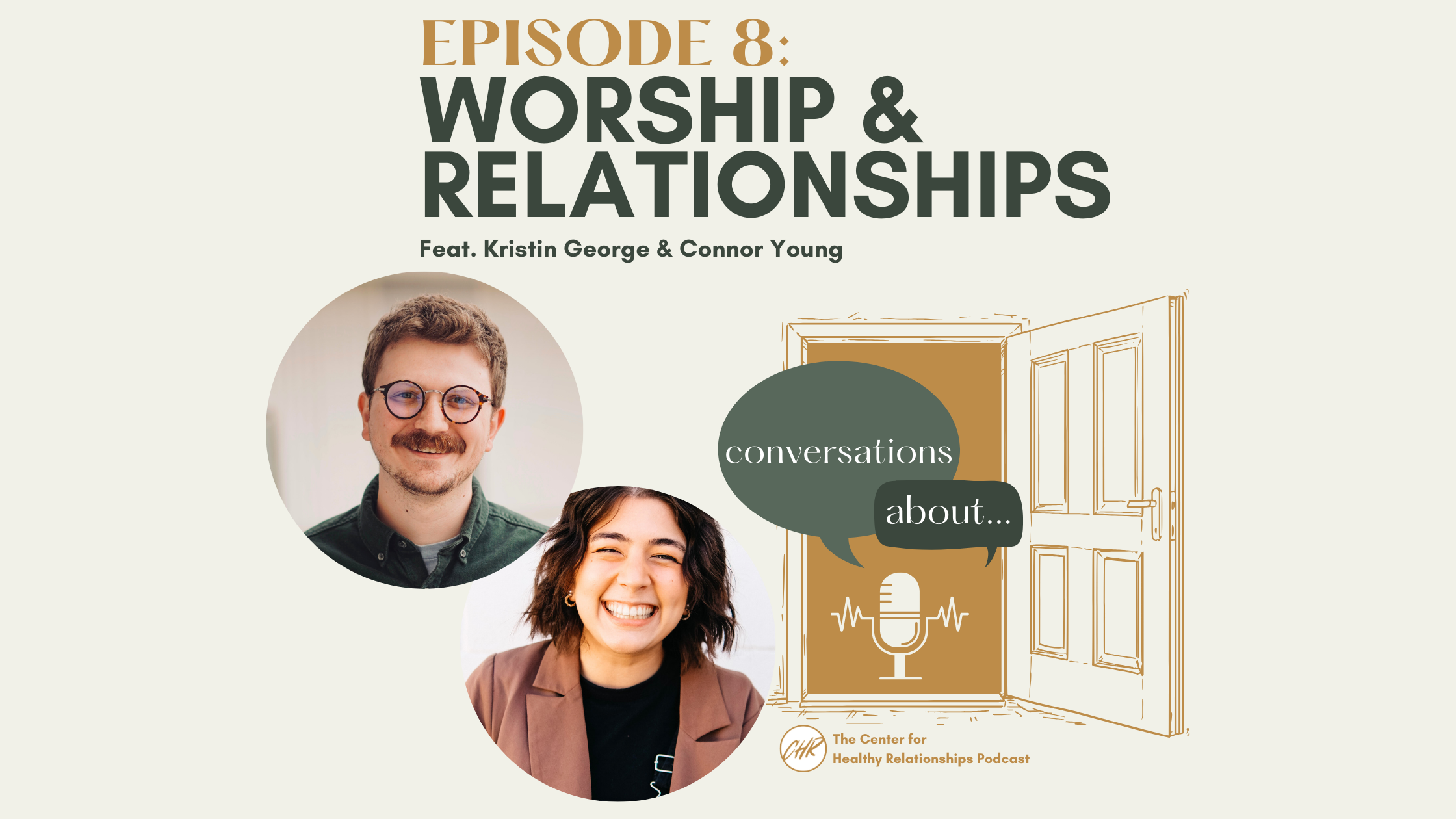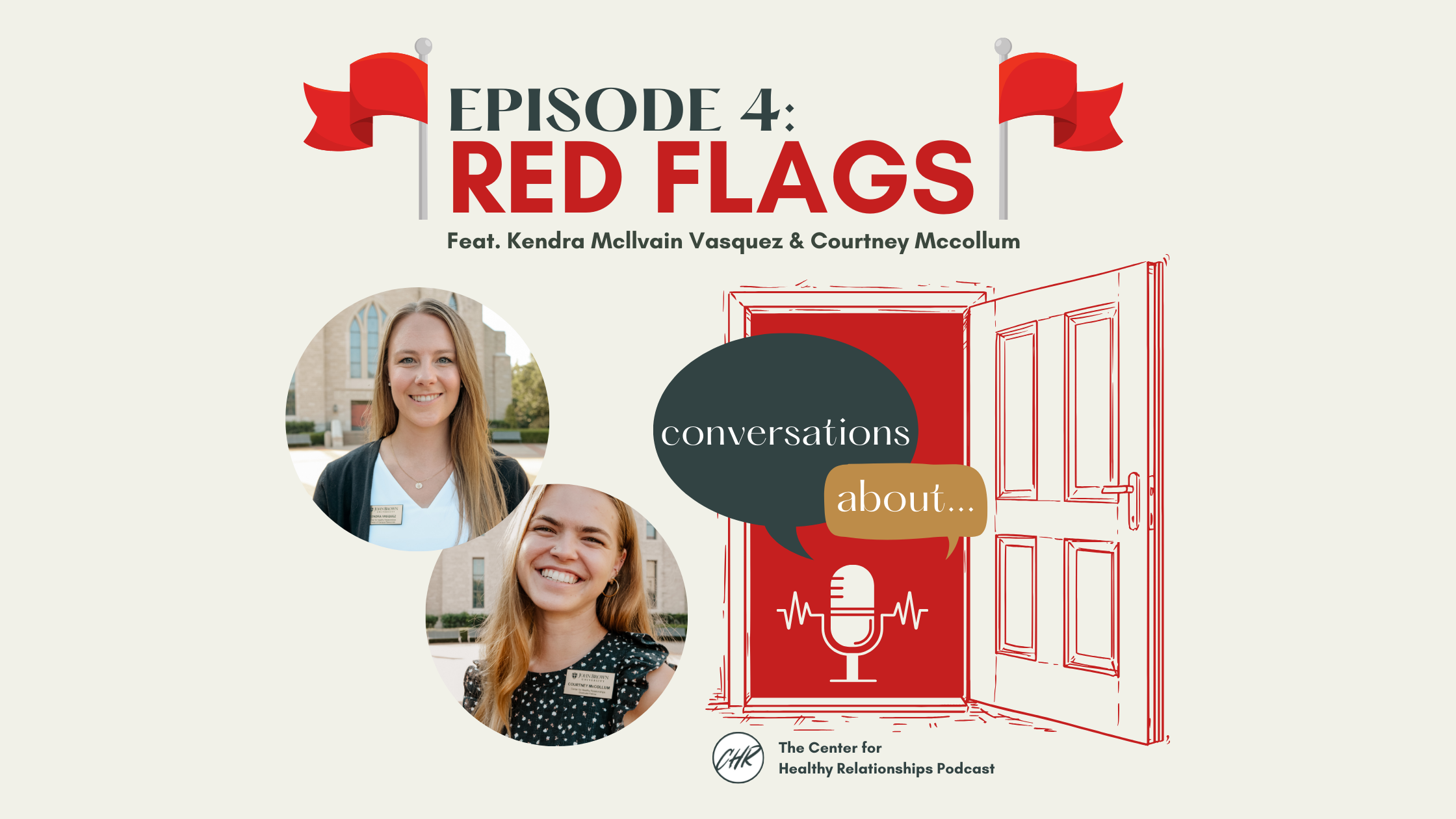why it matters to have this conversation, whether you are married or not!
Discussion Questions with your friends:
1. What word or phrase comes up for you when you think about being married in college?
2. Why if at all do you think this is an important conversation both for students who are married, and who are not?
3. What stands out to you most about the needs assessment themes Kristin discussed? Why do you think that stood out to you?
4. What positives can you think of related to being married in college?
5. What could you do to support your friends who are married? What could you do to support your friends who are not married?
6. How can you seek to understand your neighbor first before seeking to be understood?
7. What does it look like to be a catalyst for change in your own community regarding this conversation?
For further resources on this topic check out:
Get involved with Married Student Life on campus
- Not knowing how to balance all the different expectations and responsibilities one may have (i.e. Student, wife, husband, employee, family member, etc.)
- Student Time Balance - Time Management
- Social/Community needs
- Balancing Household Responsibilities
- Familial Relationships/Homeostasis
- Benefits of Being Married, and Having a Spouse to Process/ Learn with
- Financial Dependence/Independence
- Keeping your individuality while also growing together
Research cited:
Allred, C. (2018). Marriage: More than a century of change, 1900-2016. Family Profiles, FP-18-17. Bowling Green, OH: National Center for Family & Marriage Research. https://doi.org/10.25035/ncfmr/fp-18-17
Bloome, D., & Ang, S. (2020, October 1). Marriage and union formation in the United States: Recent trends across racial groups and economic backgrounds. Demography. Retrieved January 30, 2023, from https://read.dukeupress.edu/demography/article/57/5/1753/168376/Marriage-and-Union-Formation-in-the-United-States
Council for Christian Colleges and Universities. (n.d.). About. CCCU. Retrieved February 22, 2023, from https://www.cccu.org/about/
Council for Christian Colleges and Universities. (n.d.). CCCU 2019-2020 Annual Report.
Council for Christian Colleges and Universities. (n.d.). 2021 Fall Advance by the Numbers
Fry, R. (2017, October 11). The share of Americans living without a partner has increased, especially among young adults. Pew Research Center. Retrieved February 11, 2023, from https://www.pewresearch.org/fact-tank/2017/10/11/the-share-of-americans-living-without-a-partner-has-increased-especially-among-young-adults/
Graff, N., Horowitz, J., & Livingston , G. (2020, August 27). Marriage and cohabitation in the U.S. Pew Research Center's Social & Demographic Trends Project. Retrieved February 8, 2023, from https://www.pewresearch.org/social-trends/2019/11/06/marriage-and-cohabitation-in-the-u-s/
United States Census Bureau. (2021, November 20). About Educational Attainment. United States Census Bureau. Retrieved February 26, 2023, from https://www.census.gov/topics/education/educational-attainment/about.html
United States Census Bureau. (2011) Marital Status of the Population by Sex and Age: 2009. Retrieved from http://www.census.gov/compendia/statab/2011/tables/11s0057.pdf.
United States Census Bureau. (2021, October 8). Marital status in the United States. Census.gov. Retrieved February 18, 2023, from https://www.census.gov/library/visualizations/interactive/marital-status-in-united-states.html
United States Department of Education. (2014). Profile of Undergraduate Students: 2011-2012. Retrieved on February 11, 2023, from https://nces.ed.gov/pubs2015/2015167.pdf




